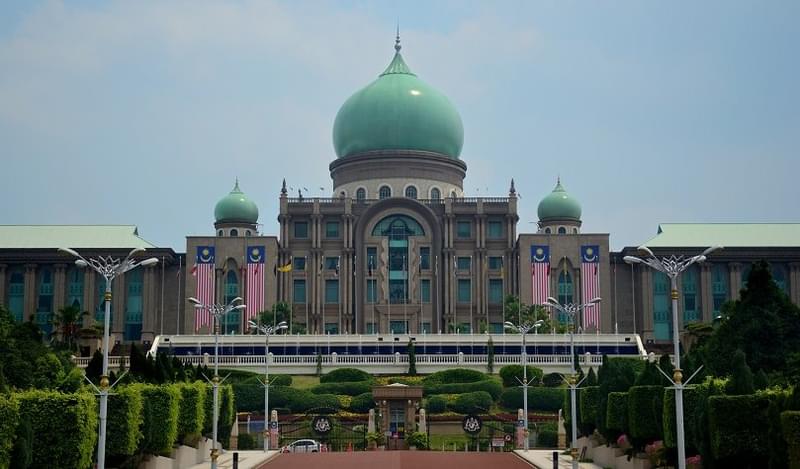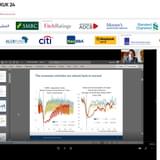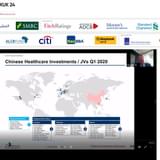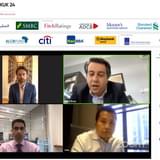The latest World Bank data show Malaysia is forecast to put in a respectable 4.4% GDP growth in 2017, up from 4.2% in 2014 – its lowest level in over seven years, and the organisation estimates the country could see up to 4.6% growth in 2018.
The recent uplift in the country’s economic prospect owes itself partly to the rise in oil prices, which are up 65% on their 2015 lows. But that only tells a small – indeed, diminishing, part of the country’s story, despite its common association with the broader commodities producer narrative. In 2013, oil accounted for about 35% of the government’s revenues, but today oil accounts for just 12-14% of the government’s take despite a more than doubling of crude production during that period.
A fiscal consolidation programme seven years in the making is one of the leading factors driving the recovery. Policy makers gradually adjusted to the shock of lower oil revenues by eliminating or reforming a raft of fuel and food subsidies and introducing new taxes, including the long-promised 6% goods and services tax (GST), both of which had a strong influence on the country’s finances, and helped trim the deficit to forecast lows of 3% of GDP in 2017, down 0.1% from the year before. At the same time, a recovery in exports coupled with a reduction in remittances abroad helped push the current account surplus towards a two-year high in 2017, data from the IIF and the Ministry of Finance suggest.
The Razak government has also helped drive growth in key sectors including construction and real estate through initiatives like the 1Malaysia People’s Housing Programme (PR1MA), which aims to incentivise developers to build affordable housing for low-income earners, and boost disposable income through direct targeted-transfers to vulnerable segments of the population. It also encouraged government-linked entities and state funds to invest more in domestic productive sectors, feeding back into growth.
Credibly Incredible: 1MDB
The credibility of its policy decisions makes Malaysia a stand-out country among its ASEAN neighbours, but the incredible nature of the still-unfolding scandal involving state-run 1MDB threatens to leave the country’s prospects in a state of arrested development.
The fund, reincarnated by Razak in 2009 (it was previously Terengganu Investment Authority or TIA, a sovereign wealth fund), was embroiled in controversy from its very inception.
In 2015, it was revealed that up to US$3.5bn was, for years, siphoned off into the accounts of various associates of the Prime Minister, including his step-son and himself, allegedly; an investigation into Razak showed he had hundreds of millions of dollars stashed away in his personal bank account, while hundred of millions of dollars was funnelled through a complex web of shell companies and fake contractors, only to end up being spent on luxury cars, property, and holidays.
In early 2016 Malaysia’s attorney general cleared Razak, who claimed the US$681mn was a gift from the Saudi Royal family, of criminal wrongdoing, but by that point the scandal had already metastasised, prompting criminal investigations in a handful of countries and spreading as far as Hollywood. Some of the fund’s money was in fact used to finance the blockbuster hit ‘Wolf of Wall Street’ – ironically, a story about a morally depraved man and his associates defrauding wealthy investors out of millions of dollars.
“The 1MDB scandal had a more profound effect on sentiment and, rightly or wrongly, has created the perception that there are significant governance issues in Malaysia,” explained Bejoy Das Gupta, Chief Economist, Asia Pacific, at the IIF.
“With an election in the offing, it’s likely the volume around the ‘crisis of confidence’ narrative will only increase, which could irk some international investors and create challenges for entities looking beyond Malaysia for new capital.”
This ‘crisis of confidence’ is clearly reflected in the data. Non-resident portfolio inflows in 2013 were running at US$60bn; by the end of 2015 Malaysia saw net outflows of US$6.5bn, according to data compiled by Bloomberg. These are huge swings in foreign investment – US$65bn in two years. In 2016, we saw net portfolio inflows of US$3.5bn, with about US$8bn US$13bn expected in 2017 and 2018, respectively, according to forecasts from the IIF.
The steep drop-off in foreign portfolio investment largely resulted from high inflation, which accelerated in November 2016 after the US election result, and after the country’s Central Bank, Bank Negara Malaysia, began enforcing a ban on offshore ringgit trades through instruments like non-deliverable forwards (NDF) in a bid to improve monitoring and management of the currency.
The move to ease speculative pressure on the ringgit and bring more hedging activity onshore created an added hindrance for offshore investors, reducing their scope to hedge their investments in an efficient way – and initially fuelled speculation that the government would implement more stringent capital controls. About MYR26.2bn worth of local bonds were dumped by foreign investors in March 2017 alone, due in part to extremely thin liquidity in the NDF market, bringing total foreign ownership in the local bond market to 38.5%, down from about 47% in November 2016.
The high percentage of foreign holdings of Malaysian fixed income assets makes the ringgit notoriously volatile. Between 8 May and 8 November 2016, the ringgit depreciated from MYR4.0122 per US dollar to MYR4.2017, with the currency jumping to MYR4.3141 per US dollar after the US election sucked money out of a raft of emerging market assets. It peaked at MYR4.4938 per US dollar at the beginning of January 2017. As of mid-May, the ringgit was trading at roughly MYR4.32-4.38 per US dollar.
“We aren’t totally steering clear of Malaysia, but we have paired back our fixed income holdings to a great extent, and kept our equities holdings more or less stable,” a London-based fund manager told Bonds & Loans.
“Currency volatility makes it very difficult to fine-tune allocations. The ringgit has been a consistent underperformer, and the NDF ban makes it more challenging to find value because of the added cost – in both money and time – associated with a trade.”
Governance Perceptions, Election Could Trample Green Shoots
Green shoots have begun to emerge. Malaysian equities saw US$581mn of net inflows since the end of March. The FTSE Bursa Malaysia KLCI index, a composite market-cap weighted equities index, is up 10% from its November 2016 lows and up 12% from its August 2016 lows, the lowest level reached since 2012. At the same time, spreads on local currency government debt have tightened by an average of 25bp since the end of 2016 at the 10-year mark on the curve, while the currency has strengthened nearly 4% against the greenback since the start of the year to mid-May.
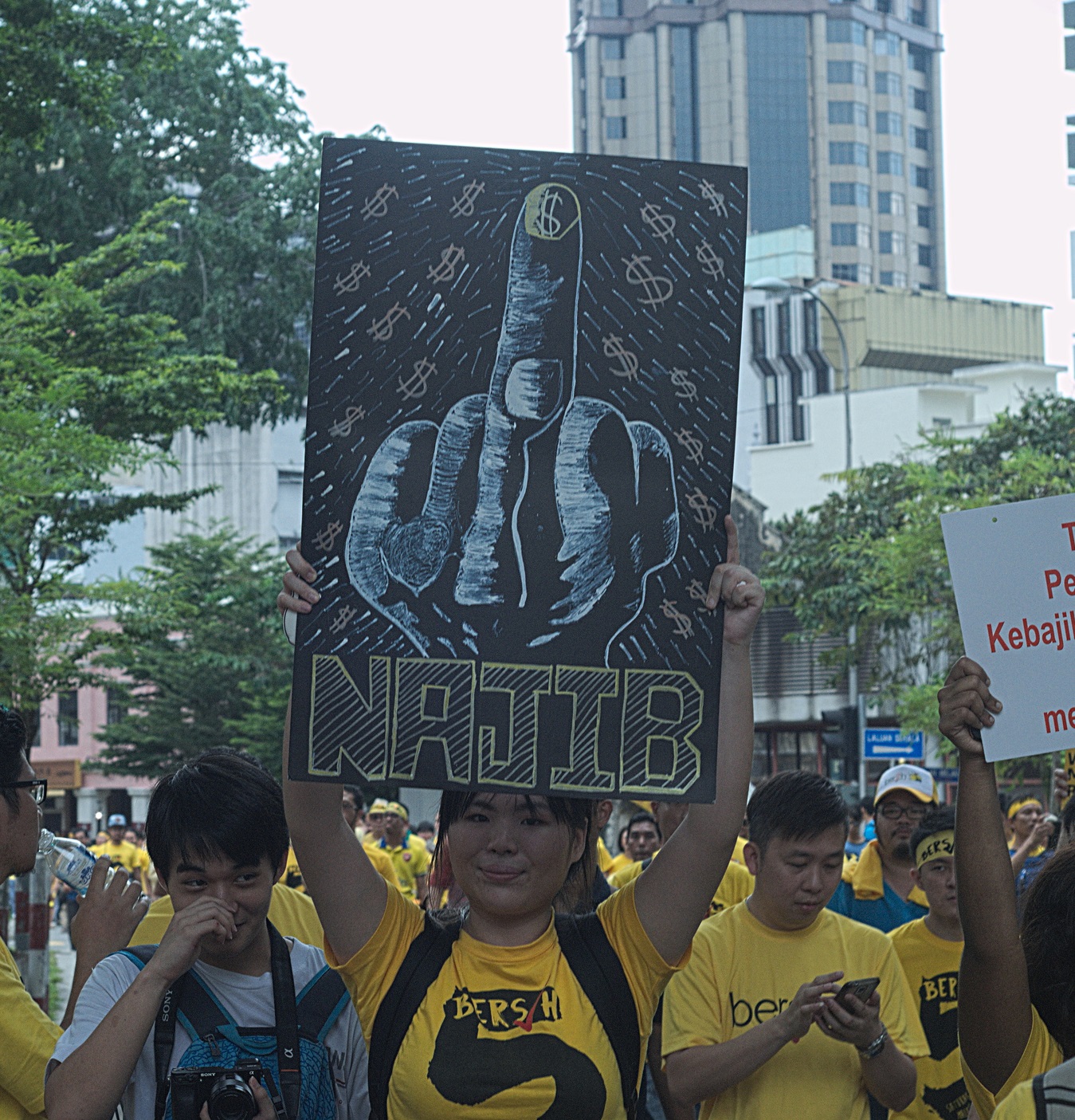 Despite higher than anticipated inflation – which hit 5.1% in March, its highest levels since 2008 – resulting from higher fuel and food prices, the Central Bank seems relatively optimistic about the country’s growth, which accelerated to 4.4% in 2016.
Despite higher than anticipated inflation – which hit 5.1% in March, its highest levels since 2008 – resulting from higher fuel and food prices, the Central Bank seems relatively optimistic about the country’s growth, which accelerated to 4.4% in 2016.
But analysts and investors are still questioning the speed at which Malaysia can recover from the 1MDB scandal, which has influenced sentiment around the country’s credits.
“Political risk is still quite elevated. We have always been strong on due diligence but the unfolding 1MBD scandal has changed our perception of some of the country’s entities, particularly those linked to the government, for the worse,” the fund manager said.
Malaysia fell two notches to sixth place in the biennial Corporate Governance (CG) Watch 2016 ranking of 11 Asia-Pacific countries, largely due to the scandal, and a recent Moody’s report says most worldwide governance indicators don’t fully capture the degree to which corruption or imperfect policy implementation has constrained government effectiveness.
Fresh elections, which are scheduled for mid-2018 but will likely come much sooner, could provide some resolution for the country after a three-year rollercoaster ride, but Razak’s fate – and the fate of his United Malays National Organization (UMNO), Malaysia’s largest political party – is far from certain.
Razak, who consolidated power over the past year and a half by purging critics within his cabinet and replacing the attorney general, could face tougher competition at the ballot box from a population struggling to cope with rising living costs following the removal of key subsidies.
UNMO lost the popular vote in 2013 but won the most seats in parliament, however, the coalition will be much more fractured going into the next poll than was the case four years ago, giving UNMO and the UNMO-led Barisan Nasional (BN) coalition an advantage over its rivals. The most recent state elections in Sarawak in May last year, for instance, saw BN extend its margin over the Pakatan Harapan (PH) by 17 seats.
Analysts believe that if Malaysians went to the polls today, Razak would likely secure yet another victory. But it isn’t clear whether that would be a good thing for the country. Malaysia has garnered a great deal of respect for its fiscal prudence and sound approach to policy-making, and it has shown it won’t hesitate to put investors on the backfoot for the sake of ensuring long-term health in its financial system – which is a good thing. But three years on, it is still struggling to shake a sense of unease among the global investment community. Targeting further reforms around governance and transparency could go a long way towards ensuring its reputation improves, but some believe it may not be enough.
“At the end of the day, it’s a question of trust. Is this 1MDB scandal the tip of the iceberg? Is it even being resolved appropriately? That’s what many Malaysians – and emerging market investors – are asking themselves,” the fund manager said. “All of this is still really opaque, and many – rightly or wrongly – have trouble detaching Razak from the whole affair.”
